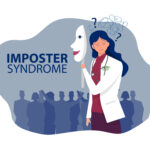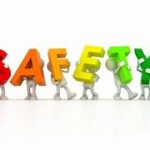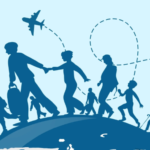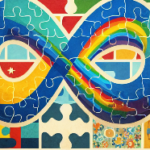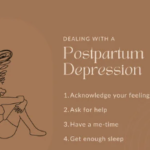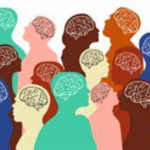
Autism spectrum disorder (ASD) is an increasingly pressing issue worldwide, and Nigeria is no exception. As the incidence of ASD rises globally, communities are grappling with how best to support individuals and families affected by this condition.
In Nigeria, public awareness campaigns and policy reforms are urgently needed to address the gaps in understanding and support for autism. Dr. Adeola Folorunso, a Doctor of Humanities and a passionate advocate for autism awareness, is at the forefront of efforts to bring about change in Nigeria.
Through her work, she highlights the complex challenges facing individuals on the spectrum, their families, and caregivers, and calls for a more active role from the Nigerian government in these initiatives.
This and more are what this article will be talking about today. So, sit back and relax as we delve into this urgent situation and why you need to join the fight.
Why Autism is A Global Public Health Concern
According to the World Health Organization (WHO), the prevalence of autism has been steadily rising over the past two decades, with current estimates suggesting that 1 in 36 children globally are diagnosed with ASD, up from 1 in 150 in 2000.
The US Centers for Disease Control and Prevention (CDC) reports that ASD affects all racial, ethnic, and socioeconomic groups, although it is approximately four times more common in boys than in girls.
The increasing prevalence of ASD poses significant public health challenges. The disorder not only affects the quality of life of those diagnosed but also places a substantial burden on their families, caregivers, and healthcare systems.
The Situation in Nigeria: Limited Awareness and Support
In Nigeria, the landscape for autism awareness and support is even more challenging. Over the past decade, there has been a notable increase in the incidence of ASD, with recent estimates suggesting that 1 in every 2 births may be affected by autism.
Despite this rise, there is a stark paucity of research on ASD in Nigeria, and awareness of the disorder remains limited among the public and even among healthcare professionals.
The reasons for the lack of awareness and support in Nigeria are multifaceted. Cultural beliefs and misconceptions about autism persist, often leading to stigma and social isolation for affected individuals and their families.
In many communities, autism is misunderstood because of spiritual or supernatural forces, which further complicates efforts to promote awareness and provide support.
Dr. Adeola Folorunso is A Voice for Change
Dr. Adeola Folorunso has witnessed firsthand the challenges faced by children with autism and their families in Nigeria. Through her work as the founder of Matermental, a non-governmental organization (NGO) focused on improving healthcare access for vulnerable populations, she has seen how caregivers and healthcare professionals navigate a complex and often frustrating landscape to support children on the spectrum.
Caregivers, according to her experience, face immense pressures as they try to manage the needs of children with ASD. The demands of providing consistent care and support can lead to physical and emotional burnout, especially when resources are scarce, and social support is limited.
Dr. Folorunso notes that many children with autism in Nigeria require various therapies—such as speech, occupational, and behavioral therapies—that are not always accessible or affordable.
The lack of these essential services often exacerbates the challenges faced by families and hinders the development and well-being of children on the spectrum.
The Impact of Social Determinants of Health
The challenges faced by children with autism in Nigeria are further compounded by the social determinants of health. In many cases, low-income families are unable to afford the specialized therapies and interventions that are often necessary for managing autism. Cultural beliefs and misconceptions can also hinder access to care, as some communities may view autism as a spiritual or supernatural condition rather than a medical one.
See, for example, “A Psychologist’s Perspective on the Taboo of Autism in Nigeria” an interesting article by Autism Around the Globe, which linked the situation in Nigeria to pre-1943 America. Autism Around the Globe is a global public awareness project of the Nancy Lurie Marks (NLM) Family Foundation.
In Nigeria, these issues are further exacerbated by social stigma and a lack of public awareness, which can prevent families from seeking help or advocating for their children’s needs.
Addressing Sensory Sensitivities and Health Implications
Children with autism often have heightened sensory sensitivities, which can make daily tasks like personal hygiene challenging. By working with different people, Dr. Folorunso highlighted that many children on the spectrum are particularly sensitive to touch, light, sound, and pain, which can make activities like dental care difficult and distressing.
Over time, neglect of oral hygiene can lead to serious health issues, including dental caries, plaque buildup, halitosis, and even respiratory and cardiovascular diseases caused by bacteria in the mouth.
Recognizing these challenges, Dr. Folorunso has spearheaded a community dental outreach program at the School for Special Needs Children in Iwo, Osun State. This initiative, organized in collaboration with various organizations including Gateway Dental Care, DAB Foundation, Mindcare Mental Health Clinic, and Literareach, aims to address the specific dental care needs of children with autism.
The outreach program provides free dental services, including scaling, polishing, and mouth-washing, to over 150 pupils, along with health education on proper dental hygiene practices.
Building Community Support and Awareness
Dr. Folorunso stresses the importance of community support and awareness alongside direct services for autism. She believes community initiatives are key to changing perceptions and reducing stigma.
To foster a supportive environment, she is organizing a health summit to address broader issues faced by children with autism in Nigeria. The summit will gather experts, parents, caregivers, professionals, and policymakers to discuss challenges and develop actionable recommendations.
Topics will include mental health, education, and community support systems, focusing on accessible, affordable, and sustainable interventions.
Advocacy for Policy Reform
While community initiatives are crucial, Dr. Folorunso also stresses the need for policy reform to ensure that the rights of individuals with autism are protected and promoted.
Currently, Nigeria lacks a comprehensive legislative framework for supporting individuals with autism and their families. There are no national guidelines for diagnosing and managing autism, and access to specialized services remains limited, particularly in rural and underserved areas.
In a recent article, the first lady of Nigeria, Oluremi Tinubu in marking world autism day 2024 called for early diagnoses of autism in the country. That was a good sign in the right direction, but more still needs to be done.
Dr. Folorunso is therefore calling on the Nigerian government to take a more active role in autism awareness and support initiatives. She argues that the government must prioritize the development and implementation of policies that promote early diagnosis, access to quality care, and ongoing support for individuals with autism and their families.
This can include investing in training for healthcare professionals, expanding access to specialized services, and addressing the social determinants of health that impact care for individuals with autism.
The Way Forward
As the prevalence of autism continues to rise globally, countries like Nigeria must take steps to improve awareness, support, and care for individuals with autism and their families.
Dr. Folorunso’s work through Matermental and her advocacy for policy reform highlights the urgent need for a comprehensive approach to autism in Nigeria—one that includes public awareness campaigns, community support initiatives, and legislative action.
To achieve this, Dr. Folorunso calls on all stakeholders—government officials, healthcare providers, community organizations, and the general public—to join in the effort to raise awareness about autism and advocate for the rights of individuals on the spectrum.


